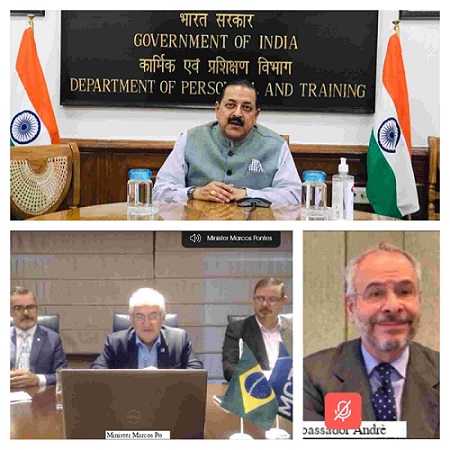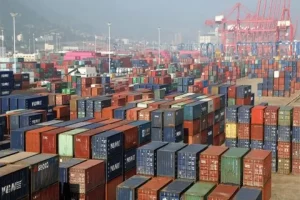Brazil has requested for India’s support in procurement of material and systems for its launch vehicle programme after the successful launch of its Amazonia-1 satellite by ISRO yesterday. The launch, which also marked the first dedicated mission of ISRO’s commercial arm NewSpace India Limited (NSIL), marks a beginning of robust bonding between both the countries in the field of science, technology and innovation.
In a virtual interaction with his Brazilian counterpart, Marcos Pontes, and the heads of the Brazilian Space Agency, Minister of State for Atomic Energy and Space, Jitendra Singh, said that India’s ascent to the World Comity of Nations will happen via Space Technology.
Singh said that space technology is contributing in a big way whether it is railways or smart cities, agriculture or disaster management, highways or defence as Prime Minister Narendra Modi has provided a special impetus to all the scientific pursuits in the last five-six years.
Referring to PM Modi's decision to "unlock" India’s space technology to private players for the first time after independence, the minister said that this will bring ease of living, ease of environment and ease of humanity. He said that even though India began its space journey much after several other countries, it is in a position today to provide inputs from Mangalyaan and Chandrayaan to the premier institutions of the world like the NASA.
In his address, Brazilian Minister of Science, Technology and Innovation, Marcos Pontes said that India-Brazil joint venture in space technology will offer new opportunities for companies and will help create new jobs. He said that Amazonia-1 is an optical earth observation satellite and is intended to provide remote sensing images to observe and monitor deforestation, to improve the real-time detection system of deforestation in Brazil, especially in the Amazon region, and to monitor the diversified agriculture throughout the country.
Pontes said that the new satellite would also open the door for multiple business, trade and governmental opportunities.




















